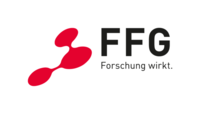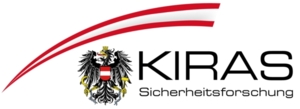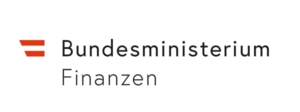National Reserve for Ensuring the Food Supply of the Population in Crises
Background
In modern economies, ensuring food supply is a complex undertaking. This is not only due to the interwovenness within the supply chains themselves, but also the advanced logistics methods (e.g., just-in-time logistics) and the use of digital technologies that contribute to the high complexity. The resulting high levels of interconnectedness and interdependencies make such systems vulnerable, especially during times of crisis. While food supply systems in Austria have proven to be resilient during the COVID-19 pandemic, primarily due to sufficient capacities to meet the demand for basic foods, this does not automatically guarantee the same outcome in other emergency situations.
Project Content
To increase the resilience of the Austrian society in times of crises, both individuals as well as public and private organisations are encouraged to stock up on emergency supplies. However, it is evident that only a relatively small portion of the population complies with this recommendation to a sufficient extent. Even more concerning is that many organisations which are expected to provide assistance in emergencies also have insufficient emergency stocks. Reasons for this include uncertainty about when and if crisis situations will occur, the costs associated with stockpiling, and expectations of government assistance during crises.
To prepare for disruptions in the food supply chain, numerous countries – at least seven EU member states – maintain strategic food reserves. In Germany, for instance, it is required to provide storage capacities for grains, rice, and pulses for a period of 10 years. Switzerland has compiled a list specifying the quantities and types of food and animal feed that must be stored, and companies are obligated to maintain such reserves. They are allowed to pass on the associated costs to prices. Given this and considering recent crises, Austria should follow these examples and also develop a comprehensive strategy for stockpiling food and supplies.
Goals
How should an Austrian reserve for supplying the population with safe and healthy food during times of crisis look like, and what measures should be taken for this purpose? To answer these questions, we are creating a knowledge base that can be used for informed decisions. The following data and information should be included in this knowledge base:
- Quantity and type of foods currently consumed in Austria.
- Information about the usual supply chains in normal circumstances (regional, global, etc.) to provide the selected primary products per product category.
- Survey of the quantities of resources required in Austria for food production.
- Information on crisis scenarios (type of crisis, duration of crisis, affected geographic areas, impact on supply chains, etc.).
- Presentation of the type and quantities of food and resources where shortages or failures are expected, and information on how non-storable products can be replaced.
- Provision of a tool to estimate the quantity and type of relevant foods under changing conditions (e.g., population size, proportion of the population with special dietary needs).
- Conducting case studies to validate the insights developed in the project.
Methods
We look to other countries that already have strategic reserves or plans for them as a model and gather relevant information (such as types of stored products, storage costs, waste generation, storage locations, crisis distribution plans, etc.). Additionally, we assess the specific food requirements in Austria based on target groups. We analyse the supply chains of essential food items, including the necessary resources and energy requirements. In a risk assessment, we evaluate the impact of various crisis scenarios (type of crisis and their timeframes, etc.) and the storage capacities they require. When it comes to storage, we examine and assess organisational possibilities, suitable business models, and consider geographical factors. Our methods include literature research, expert interviews, and SWOT analyses. We visualise supply chains, develop various scenarios, and validate the findings in terms of their utility through case studies.
Results
Strong global interconnections in food supply chains increase their vulnerability to crises. To address this and ensure basic provisions, it is advisable to establish government food reserves. In the present project, we analyse proven approaches to national reserves from other countries and, based on that, we create an information foundation that assists in implementing meaningful crisis stockpiling measures.
You want to know more? Feel free to ask!
Department of Rail Technology and Mobility
- IFZ Interdisziplinäres Forschungszentrum (lead)
- Consistix GmbH
- Forschungsinstitut für biologischen Landbau Österreich (FiBL)
- Johannes Pöcklhofer
- Niederösterreichische Landes-Landwirtschaftskammer




